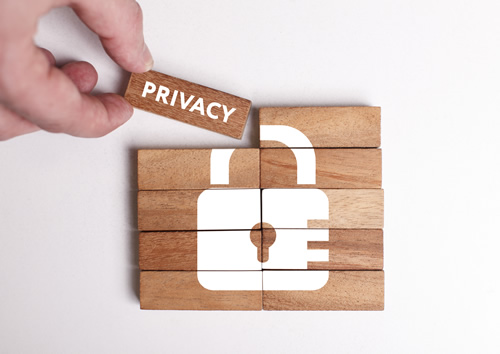Every school district is faced with a choice about how to protect student data. As districts have implemented more technology to support digital learning, student data privacy in schools has become a critical issue.
It can be a huge undertaking to vet and manage the privacy policies of all of the online resources used in a district. Even with good intentions, most districts do not have adequate protection and are vulnerable to a data breach. These breaches are becoming more common as districts struggle to keep up with technology.
Related content: 5 ways IT directors handle student data privacy
Here is the story of one district that is doing it right by effectively supporting its student data privacy policy with a comprehensive privacy management tool.
Forsyth County Schools
District administrators and school board members in Georgia’s Forsyth County Schools were committed to data privacy—and with nearly 50,000 students, the district knew protection was of the utmost importance.
District tech leaders actively searched for an enterprise data privacy solution that would allow their teachers and schools to be autonomous in finding and selecting safe applications for use in the classroom. They also knew they wanted a tool that would give local school personnel the ability to independently find online resources that are FERPA and COPPA compliant. These requirements led the district team to EdPrivacy by Education Framework.
Like many districts, Forsyth County Schools does not have a large enough IT staff to conduct the labor-intensive evaluation of every digital tool and learning resource used in classrooms throughout the district. District leaders and school board members needed a comprehensive, cost-effective solution to automate this process, and also needed EdPrivacy to integrate with their SSO solution—Classlink.
Education Framework worked with the district and developed the integration needed for Classlink. Forsyth educators now have access to more than 10,000 digital resources in the EdPrivacy database, and can order a privacy evaluation for new digital tools and programs at any time. New evaluations are provided within 24-48 weekday hours of each request.
Because the EdPrivacy database has an extensive library of approved educational resources, the district has been able to give teachers guidelines and greater latitude in choosing tools and learning resources to support their curriculum, all while protecting student data privacy. Also, the district’s professional development program has spurred adoption and implementation of EdPrivacy throughout the district.
Highlights after EdPrivacy’s first year in Forsyth County Schools include:
• 1,112 teachers are using the system
• 8,356 searches have been completed in the EdPrivacy database
• Users are advocates as they help teachers and administrators use the system
• Vendor privacy policies are vetted and continuously monitored for changes
• Quick turnaround on new edtech privacy vetting requests
• 80 percent ROI on Forsyth’s student data privacy efforts
Forsyth’s ROI for protecting student data privacy
The time spent on vetting the privacy of each online resource varies from 30 minutes for a trained person to multiple hours for an untrained individual. Using 30 minutes as a conservative calculation, Forsyth’s 8,356 searches in the EdPrivacy database saved them the equivalent of two FTE, or two full-time employees, using the district’s average salaries. If the vetting activity averaged an hour each, then the district has saved the equivalent of four full-time employees. After one school year, Forsyth has experienced an 80 percent return on its investment in student data privacy and in EdPrivacy.
In addition to this significant savings, Forsyth employees have confidence that they have ensured the ongoing protection of students’ personally-identifiable information. Forsyth educators benefit from the expanding database of approved digital resources and the monitoring of privacy policies on an ongoing basis. District leaders are notified via automatic updates of any changes in the privacy policies.
School data breaches are becoming more common, and there is an urgency for districts to do everything they can to safeguard student information. This type of 24/7 protection assures districts and school boards that they are providing the most comprehensive protection available for their students’ personal data.
- The importance of the ITS and Facilities relationship - March 22, 2024
- How edtech is transforming bilingual education in the U.S. - March 21, 2024
- 5 ways to keep schools safer with innovative visitor management - March 21, 2024


